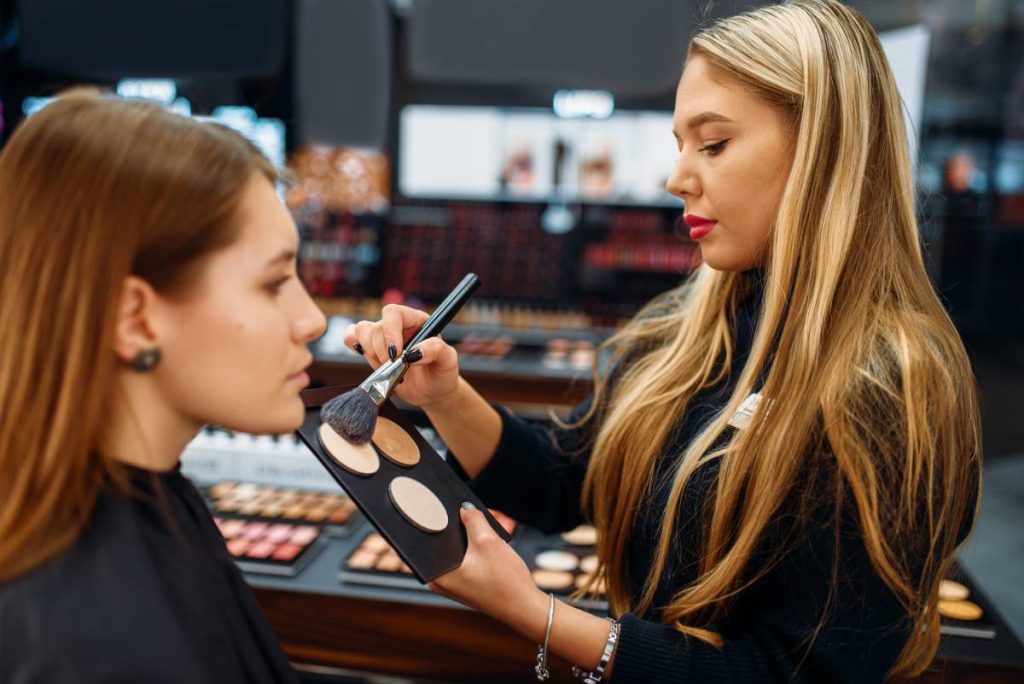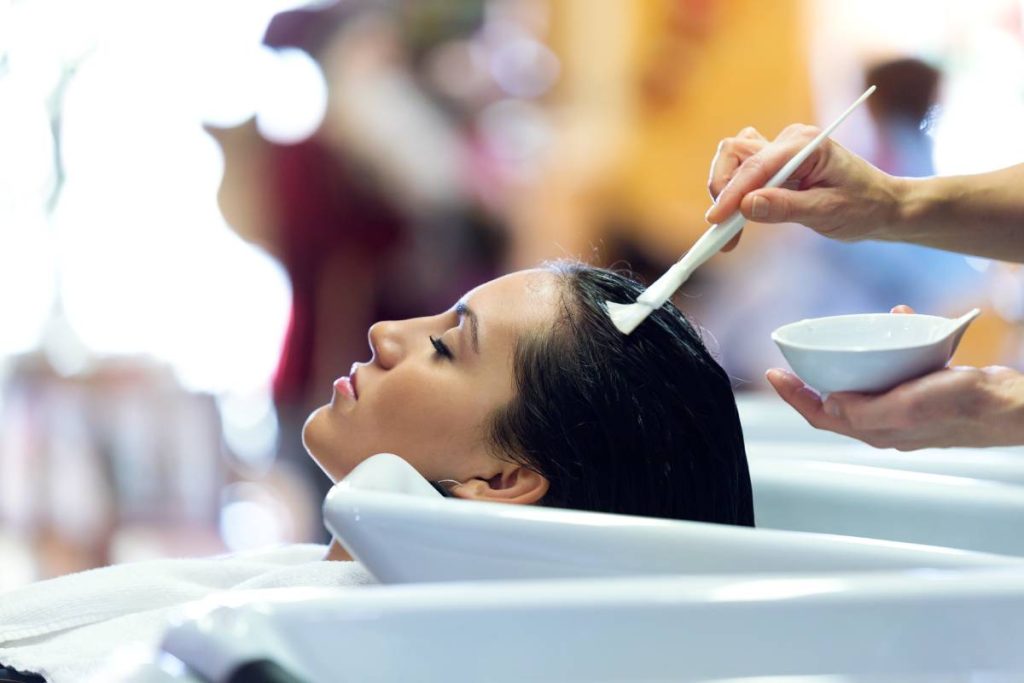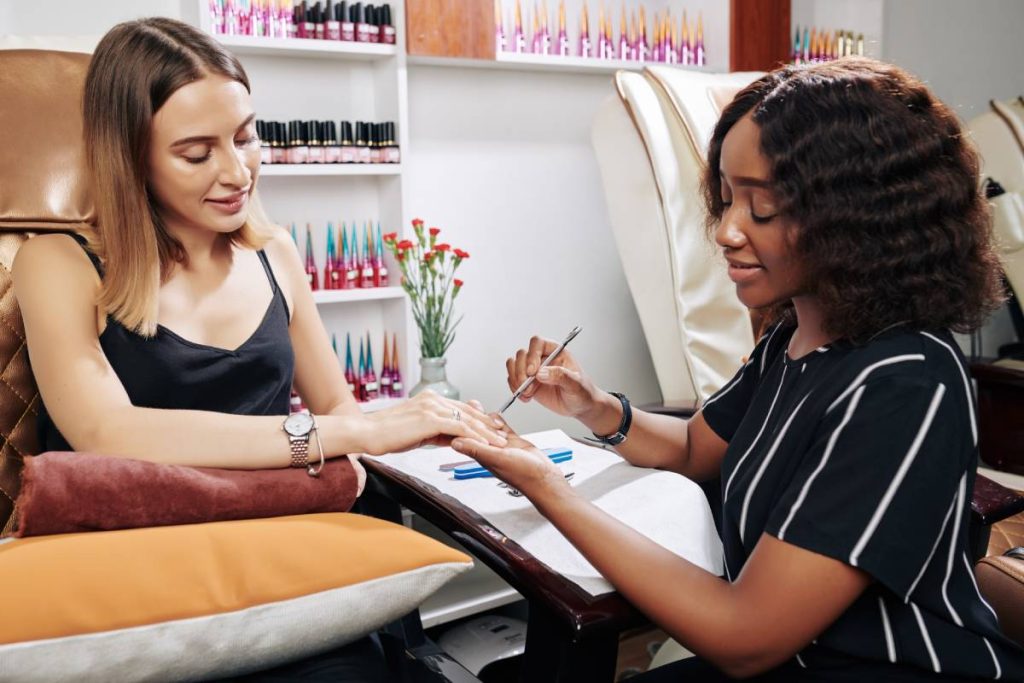“Why is skincare important to your wellness? What is beauty care and wellness? What is the relationship between beauty and wellness?”


Why is skincare important to your wellness?
Taking care of your skin isn’t just about looking good; it plays a crucial role in your overall wellness. The skin, being the body’s largest organ, acts as a protective barrier against external threats like bacteria, viruses, and environmental pollutants. Understanding the significance of skincare is essential for maintaining a healthy and balanced life.
Protection from External Factors: One of the primary reasons skincare is important to your wellness is that it shields your body from various external factors. The skin acts as a barrier that prevents harmful microorganisms from entering your body, reducing the risk of infections and illnesses. Proper skincare helps maintain the integrity of this protective layer, ensuring it functions optimally.
Prevention of Skin Issues: Regular skincare routines can help prevent common skin issues such as acne, dryness, and irritation. By cleansing, moisturizing, and protecting your skin, you create an environment that discourages the development of these problems. Taking proactive steps in skincare not only promotes physical well-being but also contributes to mental well-being by boosting self-esteem and confidence.
Healthy Aging: As we age, our skin undergoes changes that can lead to wrinkles, fine lines, and sagging. A well-maintained skincare routine can slow down these aging effects. Using products with antioxidants, moisturizers, and sun protection can keep the skin nourished and protected, promoting a more youthful appearance and supporting your overall wellness.
Boosting Self-Confidence: Clear and healthy skin often translates to increased self-confidence. When you feel good about your appearance, it positively impacts your mental and emotional well-being. Skincare is not just about addressing physical aspects but also about cultivating a positive self-image, which is vital for a holistic sense of wellness.
Sun Protection for Overall Health: Exposure to the sun’s harmful UV rays is a major factor in skin damage and aging. Regular application of sunscreen helps protect the skin from these damaging effects, reducing the risk of skin cancer and premature aging. Sun protection isn’t just a cosmetic concern; it’s a crucial aspect of overall health and well-being.
Hydration and Nutrient Absorption: Proper hydration is essential for skin health. Skincare involves maintaining adequate moisture levels, allowing the skin to function optimally. Additionally, skincare products often contain beneficial nutrients that nourish the skin. Well-hydrated and nourished skin contributes to your overall wellness by supporting bodily functions and promoting a healthy appearance.
Routine as a Form of Self-Care: Engaging in a skincare routine can be a form of self-care, providing a moment of relaxation and pampering. Taking time for yourself contributes to stress reduction, which has numerous positive effects on your mental and physical health. Simple acts like cleansing your face or applying moisturizer can become enjoyable rituals that enhance your overall well-being.
In conclusion, skincare is not just a cosmetic concern; it is a fundamental aspect of overall wellness. By protecting your skin, preventing issues, and promoting healthy aging, a consistent skincare routine contributes to both physical and mental well-being. Embracing skincare as a form of self-care not only enhances your appearance but also fosters a positive relationship with yourself, ultimately supporting a balanced and healthy life.

What is beauty care and wellness?
Beauty care involves a range of practices and routines aimed at enhancing one’s physical appearance. This includes skincare, hair care, and grooming rituals. The primary goal of beauty care is not just about achieving external attractiveness but also about promoting self-confidence and a positive self-image.
Skincare: Skincare is a fundamental aspect of beauty care, focusing on the health and maintenance of the skin. It includes cleansing, moisturizing, and protecting the skin from environmental factors. A proper skincare routine helps prevent skin issues, promotes healthy aging, and contributes to an overall radiant complexion.
Hair Care: Hair care involves practices to maintain the health and appearance of the hair. This includes regular washing, conditioning, and protecting the hair from damage. Hair care contributes not only to aesthetic beauty but also to a sense of cleanliness and well-groomed confidence.
Grooming: Grooming encompasses various practices such as nail care, proper hygiene, and maintaining a neat and tidy appearance. Attention to grooming not only enhances physical attractiveness but also reflects self-respect and consideration for personal well-being.
Wellness:
Wellness goes beyond physical appearance, addressing the overall health of the mind and body. It involves adopting positive lifestyle habits that contribute to a balanced and fulfilling life.
Physical Wellness: Physical wellness includes activities that promote a healthy body, such as regular exercise, balanced nutrition, and sufficient rest. It aims to prevent illness, maintain a healthy weight, and support the body’s overall functioning.
Mental and Emotional Wellness: Mental and emotional wellness focus on maintaining a positive state of mind. Practices like stress management, mindfulness, and seeking emotional support contribute to mental well-being. Emotional wellness acknowledges the importance of addressing feelings, fostering resilience, and cultivating a positive outlook on life.
Spiritual Wellness: Spiritual wellness involves finding meaning and purpose in life. This can be achieved through activities like meditation, self-reflection, and connecting with one’s beliefs or values. Spiritual wellness contributes to a sense of inner peace and harmony.
The Interconnection:
Beauty care and wellness are interconnected, influencing each other in significant ways. When individuals take care of their physical health through wellness practices, it often reflects positively on their external appearance. Similarly, engaging in beauty care routines can contribute to improved self-esteem and mental well-being.
Conclusion:
In essence, beauty care and wellness together represent a comprehensive approach to leading a healthy and fulfilling life. While beauty care focuses on enhancing external features and promoting self-confidence, wellness encompasses practices that contribute to overall physical, mental, and emotional well-being. Embracing both aspects allows individuals to achieve a harmonious balance that extends beyond aesthetics, fostering a positive and holistic approach to personal health and happiness.

What is the relationship between beauty and wellness?
The relationship between beauty and wellness is a dynamic interplay that goes beyond superficial aesthetics, delving into the holistic well-being of an individual. Understanding this connection is crucial for fostering a balanced and healthy approach to both physical appearance and overall health.
Physical Well-being and External Beauty:
The first layer of the relationship between beauty and wellness lies in the impact of physical well-being on external beauty. When the body is well-nourished, hydrated, and physically active, it tends to reflect positively on one’s appearance. Clear skin, shiny hair, and a vibrant complexion are often indicators of good physical health. Regular exercise promotes blood circulation, contributing to a healthy glow and overall radiance.
Mental and Emotional Wellness and Inner Beauty:
Beyond physical attributes, mental and emotional wellness plays a significant role in defining inner beauty. A positive state of mind, emotional resilience, and a sense of fulfillment contribute to an inner radiance that transcends mere physical appearance. When individuals prioritize their mental health through practices like mindfulness and stress management, it positively impacts their overall demeanor, making them more attractive in a holistic sense.
Self-Confidence and Beauty:
The relationship between self-confidence and beauty is a powerful one. When individuals feel good about themselves, it reflects in their posture, expressions, and overall aura. Beauty is not just about conforming to societal standards; it’s about embracing and celebrating individuality. A strong sense of self-esteem and self-worth, often nurtured through self-care practices, enhances one’s attractiveness and beauty from within.
Holistic Wellness Practices for Enhanced Beauty:
Engaging in holistic wellness practices contributes to enhanced beauty from both external and internal perspectives. Adopting a balanced diet, staying hydrated, getting sufficient sleep, and managing stress are all wellness practices that directly impact physical appearance. These habits support the body’s natural processes, leading to healthier skin, hair, and nails.
Embracing Individuality and Beauty:
Understanding the relationship between beauty and wellness involves recognizing and celebrating individual differences. True beauty is diverse and unique, and wellness practices should be tailored to individual needs and preferences. Embracing one’s natural features and focusing on overall well-being, rather than conforming to unrealistic standards, fosters a genuine and authentic sense of beauty.
The Two-Way Street:
The connection between beauty and wellness is a two-way street. Just as physical health influences external appearance, taking care of one’s appearance can positively impact mental and emotional well-being. A simple skincare routine, for example, can be a form of self-care, promoting relaxation and contributing to a positive self-image.
Conclusion:
In conclusion, the relationship between beauty and wellness is intricate and symbiotic. Prioritizing wellness through physical, mental, and emotional self-care directly influences external beauty. Simultaneously, taking steps to enhance one’s appearance, when done with a focus on individual well-being, contributes to a positive and holistic sense of beauty. Recognizing and nurturing this connection allows individuals to approach beauty in a way that is both authentic and sustainable, fostering a harmonious balance between looking good and feeling good.

Conclusion:
As we navigate the realms of self-care, it becomes evident that the threads of beauty and wellness are interwoven, creating a fabric that envelops our entire being. Through practices that nourish our bodies, minds, and spirits, we not only enhance our external appearance but cultivate a radiant inner beauty. Recognizing the individuality in each strand of this tapestry, we celebrate the diverse expressions of beauty and honor the uniqueness of our wellness journey. In embracing the symbiotic relationship between looking good and feeling good, we find a pathway to authenticity, self-love, and a balanced existence where beauty and wellness coalesce in a harmonious dance, guiding us towards a life of genuine contentment.
Leave a reply Cancel reply
Connect Us
World News
-
What is the Difference Between Synthetic and Fully Synthetic Oil?
November 21, 2024 -
The Best Way to Ship a Motorcycle from NSW to WA: A Complete Guide
October 16, 2024 -
What Should You Do If You Accidentally Put AdBlue in the Petrol Tank?
September 5, 2024
Most Viewed
Travel News
-
What is the Difference Between Synthetic and Fully Synthetic Oil?
November 21, 2024 -
The Best Way to Ship a Motorcycle from NSW to WA: A Complete Guide
October 16, 2024
Politics
-
What is the Difference Between Synthetic and Fully Synthetic Oil?
November 21, 2024 -
The Best Way to Ship a Motorcycle from NSW to WA: A Complete Guide
October 16, 2024









